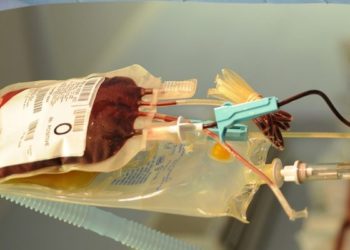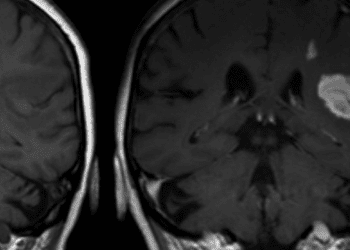Prehospital administration of tranexamic acid for major traumas does not improve outcomes
1. In this randomized controlled trial, for adults with major trauma or trauma-induced coagulopathy, prehospital administration of tranexamic acid did not improve outcomes at six months.
2. There were no differences in the number of adverse events between those patients who received tranexamic acid versus those who received a placebo.
Evidence Rating Level: 1 (Excellent)
Study Rundown: Tranexamic acid is an antifibrinolytic drug that has been shown to reduce mortality among patients with suspected bleeding or those patients with mild to moderate traumatic brain injury. However, there have been mixed results on the impact of tranexamic acid therapy. Particularly, when administered in the prehospital setting. There is still a gap in knowledge as to understanding the benefits and risks of tranexamic acid on long-term morbidity and mortality. Overall, this study found that there was no significantly greater percentage of patients that survived with a favorable functional outcome at six months in those who received prehospital tranexamic acid versus those who received a placebo. This study was limited by the primary outcome data being missing for 13% of the patients due to loss to follow-up and limited generalizability of the findings as there was insufficient power to detect differences in treatment response depending on types of trauma incurred. Nevertheless, these study’s findings are significant, as they demonstrate that receiving prehospital tranexamic acid did not result in a higher percentage of patients surviving at six months with a favorable functional outcome as compared to a placebo in patients who suffered major trauma.
Click to read the study in NEJM
Relevant Reading: Tranexamic Acid for Trauma Patients — More Lives to Save and Outcomes to Consider
In-Depth [randomized controlled trial]: This double-blinded, randomized, placebo-controlled trial was conducted by the Australian and New Zealand Intensive Care Society Clinical Trial Group. Patients who were adults with suspected severe traumatic injuries and transported to participating trauma centers, as well as being high risk for trauma-induced coagulopathy were eligible for the study. Patients who were pregnant or resided in a facility for elderly people were excluded from the study. The primary outcome measured was a favorable functional outcome at six months, as assessed with the use of the Glasgow Outcome Scale– Extended (GOS-E). Outcomes in the primary analysis were assessed via an intention-to-treat population with a log-binomial regression and 95% confidence intervals (CI). Based on the primary analysis, patients who experienced favorable outcomes in survival at six months were present in 53.7% of the tranexamic acid group and in 53.5% of the placebo group (risk ratio, 1.00; 95% CI, 0.90 to 1.12). Additionally, 17.3% of patients in the tranexamic acid group and 21.8% of patients in the placebo group died within 28 days after injury (risk ratio, 0.79; 95% CI, 0.63 to 0.99). By six months, 19% of patients in the tranexamic acid group and 22.9% of patients in the placebo group had died (risk ratio, 0.83; 95% CI, 0.67 to 1.03). In summary, this study demonstrates that for adults with major trauma, prehospital administration of tranexamic acid did not result in a significant difference in patients surviving with a favorable functional outcome at six months.
Image: PD
©2023 2 Minute Medicine, Inc. All rights reserved. No works may be reproduced without expressed written consent from 2 Minute Medicine, Inc. Inquire about licensing here. No article should be construed as medical advice and is not intended as such by the authors or by 2 Minute Medicine, Inc.







